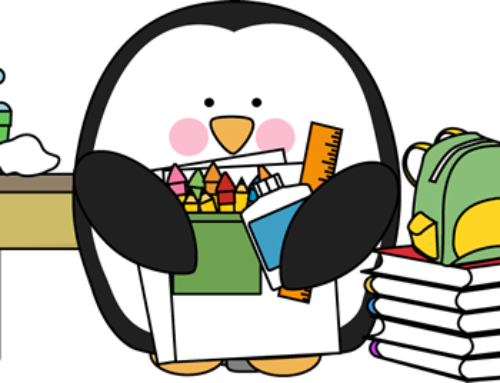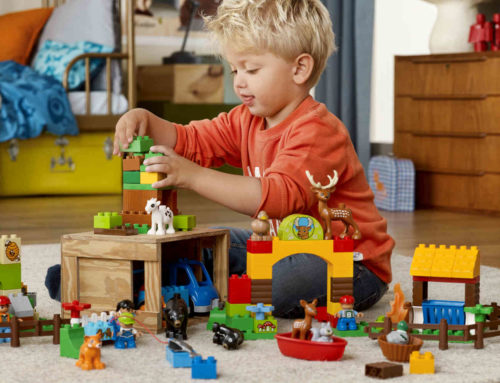Parenting is tough. Of course it’s also rewarding and we wouldn’t have it any other way, but that doesn’t change the fact that some days… Deep breath and count to 10!
There are lots of labels being used to describe parenting styles and traits nowadays. Helicopter parents, tiger mums, snowplough parents, lawnmower parents, free range, attachment, permissive, authoritarian, outsourcing… the list goes on.
What do they all mean? Does it even matter? Interacting with your child everyday requires you to take on a variety of roles, not just one. Realistically, there’s probably a bit of every style in everyone.
So should we just throw all of these theories and styles out the window and hope for the best? Maybe not just yet… because when it comes to helping your child learn new things (communication skills in particular) your style does matter. It is actually very important.
Here are some typical parent roles that we should all be aware of. Just to be clear, every parent will take on all of these roles at some point in time. That’s normal and is nothing to be concerned about. What we do need to be mindful of, however, is that we don’t use certain roles too often as that can have a negative impact on your child’s ability to learn.
1. The Director

Parents have to take on the director role every single day. You have to plan what your child is going to eat, what they will wear, when they will go to bed and so on. Sure, there may be an element of choice and some negotiation along the way (e.g., Would you like chicken or steak for dinner tonight?) but on the whole, you are in charge.
Sometimes though, we can take the director role too far. If you are playing with your child and find that you are doing all the talking or are giving your child all the ideas of what to do and how to do it, it’s time to step back and take your director’s cap off. We know that children learn best when they lead the interaction, so let them.
Parents often go into director mode when they are reading books. When your child is trying to turn the page before you’ve finished reading, or if they are trying to skip ahead or go back to look at a different picture, it is easy to say things like, “Wait. We’re not up to that part yet” or “If you aren’t going to listen then I’m not going to read anymore”.
Remember, there are no rules when it comes to reading books with your child. Notice that I said with and not to… it’s a small yet important distinction! Really you don’t even need to read the book at all! Instead, just talk about the pictures. Your child may actually learn more by you following their lead, acknowledging their interests and skipping ahead a few pages to talk about their favourite picture.
You can read our previous post on letting your child lead here.
2. The Tester

We all want to make sure that our children are on the right track, so we ask them questions such as, “What’s this?”, “What colour is that?”, “Can you count how many there are?”, to find out what they know and what they don’t. When we teach our children something new, we often ask more questions to check whether they remember what they have learnt.
The problem here is that asking your child lots of questions does not help them learn. Instead it puts more pressure on the child and often leads to the child walking away or giving up. Children learn best when they are enjoying what they are doing and when their parents are following their lead and talking about or playing with what interests them.
To avoid becoming stuck in the tester role, when playing with your child limit yourself to asking just one question. Make sure the next 5 things you say are comments related to what you are doing, or responses to what your child has said or done. For example, if you are playing with farm animals and you want to find out if your child knows the word “cow”, you might pick it up, show it to your child and ask, “What’s this?”. Your child may say “cow” or they may not. No matter how they respond, do not ask anymore questions! Instead take the cow over to the barn and make a comment such as, “The cow is tired” or “Shhh the cow is sleeping”.
You can read our previous post on asking the right questions here.
3. The Entertainer
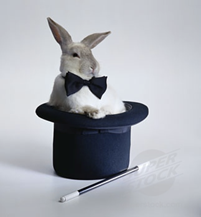
We know how important it is to spend time playing and having fun with our children. Some parents take it in their stride and find they easily fit into the entertainer role and become the life of the party! They have lots of fun and do whatever it takes to keep the kids happy.
The downside here however, is that the entertainer takes the lead and does almost all of the talking and playing. Even though the children might be rolling on the floor laughing, if they are not being given the opportunity to interact and be part of the fun, they will not learn.
Of course we want to make our children smile and laugh. The trick to not overdoing it in the entertainer role is to make sure you wait. For example, if you’re playing outside with a ball, instead of running through a range of tricks one right after the other, such as bouncing it knee to knee, headbutting it over and over again or balancing it on your nose, stop after each trick and wait for your child to suggest what you should do next.
Whenever you do or say something, pause and count to 5 slowly in your head. While you are waiting, look at your child with a happy and expectant facial expression, as if you know they are just about to say something and you’re waiting and excited to hear it. This gives your child a chance to join in and interact which means they will be able to learn and have fun with you. Win win!
4. The Helper

No parent wants to see their child struggle. If they are upset or frustrated we want to do whatever we can to make the situation easier for them. If they fall over and hurt themselves we pick them up and give them a cuddle. If they are stuck with some maths homework we pull up a chair and try to help them figure it out.
We need to be careful though, not to jump in too quickly. When something has happened or even if we think something is about to go wrong we are in such a rush to “help” that we don’t stop and wait to see how our child will try and manage the situation for themselves. Instead you need to give your child the opportunity to figure it out. If they really can’t do it wait for them to ask for help. Don’t just rush in and do it for them. They may just surprise you!
5. The Mover
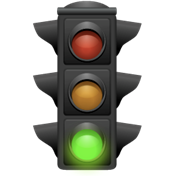
Life is busy. For many parents it can feel like there are never enough hours in the day to get everything done. Some days can just turn into a blur of constant errands, appointments and jobs. It’s exhausting! So rather than get caught up in the vicious cycle, slow down whenever you can and be present for your child. Go for a walk and let them stop and pick up every single leaf they see. It doesn’t matter whether you make it around the corner or just next door, spending time with each other is what matters.
Some days are hectic and that’s just the way it is. The world will not end if your child watches Frozen because you have a deadline and need to get some work done. In saying that, the world will also keep spinning if you decide to read a story together and leave that load of washing until tomorrow.
Pick your battles and set aside time to spend with your child. Make sure that time is free of extra distractions. It may be as simple as both of you in the car driving from one appointment to the next. Turn off the radio (or DVD) and talk to your kids. I know the “How was school?” conversation doesn’t last very long (or sometimes even get started at all) so talk about something you know your child likes or play a game like “I spy”. The interaction may be short and sweet, but it is worth it.
You can read our previous post about slowing down here.
6. The Watcher

I’ll put my hand up right now and admit that I slip into the “Watcher” role more often than I should. When I’m tired (so basically… always) it is so tempting to quietly slip away while my kids are happily entertaining themselves. Sometimes it’s for a valid reason like to go and cook dinner, other times it’s just because I want to disappear for 5 minutes and eat some of the chocolate I’ve hidden away.
Parents can take on the “watcher” role for a few different reasons. For some, they see it as a chance to multitask and are happy to talk to their child while watching from a distance while they cook, fold laundry or wash the dishes. Other parents take on the “watcher” role because whilst they do actually want to get involved, they just aren’t sure how to join in. They don’t know what to say or do, so tend to narrate or direct the child (e.g. “Wow you’re building a tower. Why don’t you put that blue block on next?”). Other times parents distance themselves because they get the impression that their child isn’t actually interested in interacting with them.
To join in and play with your child you need to play like a child!
- Use fun sounds and words like “Brrm”, “Eeewww”, or “Kaapow!”
- Get your own toy and copy what your child is doing
- Interpret what your child is doing to add new vocabulary. E.g. if they are jumping action figures around the place you could say “Superman leaps over the buildings and Spiderman swings between them”
- Add a comment. E.g. if your child is talking about Cinderella going to the ball. You might add more information by saying, “A ball is a special celebration where people dance and have fun”.
7. The Tuned in Parent
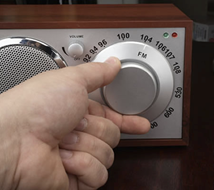
This is the most important role for you to play whenever you are interacting with your child. This is the role that will give them the best opportunity to learn. A tuned–in parent is one who is aware of their child’s interests, needs and abilities. They give their children opportunities to start interactions and then they respond to their children immediately with interest.
No-one can be a tuned in parent all the time. But if we know what we are aiming for and what we need to be mindful of, it gives us a better chance of taking on this role more often. So next time you are interacting with your child, no matter how old they are, ask yourself;
- Am I talking too much?
- Am I asking too many questions?
- Am I waiting to give my child a chance to be involved?
- Am I helping too often?
- Am I rushing too much?
- Am I joining in and playing like a child?
The answers may surprise you.
So there you have it…
Every person is different. Every child is special and every parent-child relationship is unique. The parent roles that we’ve discussed here are not extreme, they are roles that all parents take on at some point. There is no right or wrong and no judgment intended. All we are trying to do is to highlight elements of each style so that parents are aware of things that can either enhance, or hinder their child’s learning.
The most important thing to remember is that most parents are just trying their best. They are just trying to make it through each (sometimes crazy and unpredictable, and sometimes mind numbingly monotonous) day. Maybe mums and dads (and carers) are doing things that reflect what their parents did, or maybe they are intentionally doing things differently. Whatever it is, let’s support each other to help our children be the best they can be.
Remember… Sharing is caring. You can also like our Facebook page for more.


